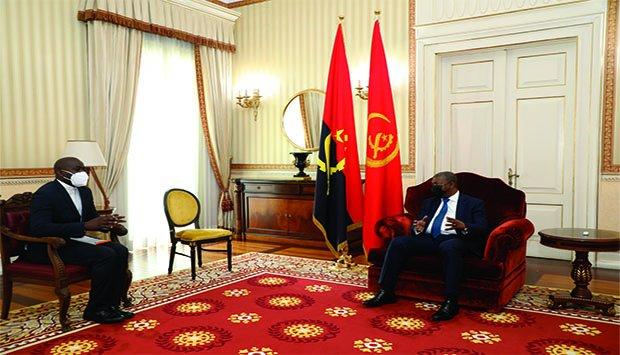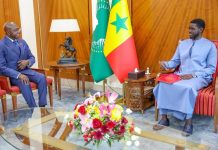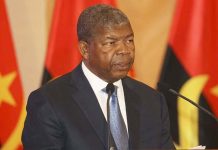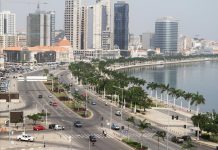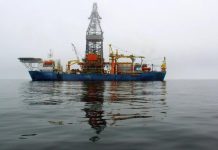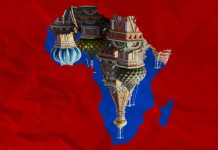Africa-Press – Angola. Political activist Rafael Marques proposed, Monday (21), to the President of the Republic, João Lourenço, the implementation of an agrarian reform in the country to increase agricultural production, and, as a result, fight hunger in some areas of the territory,national.
The investigative journalist also presented the idea during the hearing that the Head of State granted, separately, in Cidade Alta, to seven civil society entities, most of them religious leaders.
“We have, in the country, individuals with 300 square kilometers of fertile land in an idle state and it is necessary to review why there are very few people with so much land with nothing and millions of inhabitants who can make better use of these lands”, highlighted.
Rafael Marques, the first of the seven entities to be received by the President of the Republic, said that it is not possible to talk about fighting hunger without a reform process to increase agricultural production.
“Because you are not going to fight hunger by increasing imports. It is necessary for people to produce more, so that there is food security”, he defended.
The political activist said that the country is experiencing a “very large demographic explosion”, with the population growing by one million inhabitants per year, when the gains, in relation to the General State Budget, do not accompany this demographic growth.
As a proposal, in order to face this situation, he stressed the need for more people in the countryside to produce, but for that, he continued, it is necessary to have some legal certainty, so that people do not have difficulties in accessing land and to small credits.
Rafael Marques highlighted that he also took advantage of the opportunity to speak with the Head of State about a more comprehensive reform of the Constitution, having, on this subject, failed to advance in which chapter of the Magna Carta he would like the reform to focus.
“I asked the President of the Republic when a more comprehensive reform of the Constitution is needed”, said the activist, who said that he had also talked with the President about state bureaucracy.
“We discussed the issue of hunger, state bureaucracy and also about the Constitution. It was these three themes that basically dominated our conversation”, he concluded.
An agrarian reform is a reorganization of land in the countryside and happens when large portions of land, hitherto concentrated in the hands of one or a few owners, are divided into small portions and distributed to other owners, hitherto unable to access land.
Free hands
The other entity received, after Rafael Marques, was Guilherme Neves, president of the Mãos Livres Association. This social activist said he had spoken with the President of the Republic about access to justice in the country, Human Rights and the need to review the Land Law and the Mining Code as they present gray areas, which give rise to some conflicts at the community level. .
On access to justice, Guilherme Neves said that he spoke of the need to increasingly extend these services closer to the communities, especially at a time when the country is moving towards decentralization.
“We understand that the decentralization process must be accompanied by access to justice, with the implementation of courts at local levels, necessary to deal with conflict issues”, he stressed.
mosaic
In turn, the director general of Mosaiko, Friar Júlio Candeeiro, said that he discussed with the President issues related to public policies, with emphasis on gender and participatory budgeting, themes with which he said he had been working in recent years. .
He added that they also spoke about deforestation in the east of the country, due to the lack of supervision at the local level and the social situation in general. “We talked about Health, Education, municipalities and many other subjects that interest Angolans”, she clarified.
Friar Júlio Candeeiro said that the President accepted the concerns and gave guarantees that work would be done to solve the problems. He praised the Head of State’s initiative in listening to the voices of civil society, and said it was a gesture that must continue.
“It is a privileged space that the President grants to organizations that work at the local and central level and that, often, do not even have space for an audience at a lower level of the State Administration”, he regretted.
Frei Júlio Candeeiro stressed that this gesture by the President sends the message that the country belongs to all Angolans: “We all have to make our contribution to its construction and solidification”.
ADRA
The director general of Action for Rural Development and Environment (ADRA), Carlos Cambuta, said that he took the opportunity to speak with the President about the work carried out by the institution in the country, as well as the need to promote harmonious development, balanced and sustained, through the implementation of universal public policies.
He said he also suggested the need for a national dialogue, with emphasis on the meeting between the President of the Republic and the leader of UNITA, in order to calm down the political environment currently being experienced in the country. “We call for the continuation of the implementation of the participatory State Budget, as, in our opinion, it contributes to the strengthening of the decentralization process”, he stressed.
In the afternoon of the same day, the Head of State also received the president of the Seventh-day Adventist Church of the Northeast Angolan Union (UNA), Pastor Teixeira Mateus Vinte, who said he had discussed with the President the issue of combat to ongoing corruption in the country.
“We understand that this is not a project that concerns only the President of the Nation, but of all Christians”, stressed the religious leader, making it known that the institution he directs is also preparing a project aimed at combating the corruption.
Other entities received were Paul Kissolekele, leader of the Kimbaguista Church, and the Reverend André Cangovi Eurico, of the Evangelical Congregational Church in Angola, the latter taking the opportunity to praise the work carried out around national reconciliation. “It is a work that can provide moments for the development of this country”, he concluded.
For More News And Analysis About Angola Follow Africa-Press

